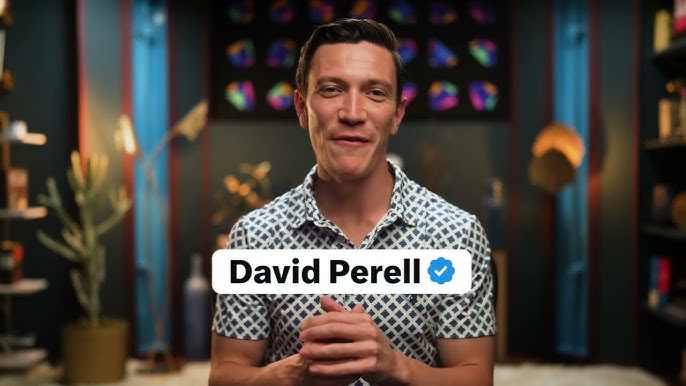
## New highlights added November 30, 2024 at 1:38 AM
> 10 Insightful Book Summary Mindmaps:
> 1) “The Psychology of Money” by @morganhousel https://t.co/KGYmhFnLup https://t.co/gfGBX9LRi8
> 
>  ([View Tweet](https://twitter.com/AlexAndBooks_/status/1861398839170641964))

## New highlights added December 6, 2024 at 6:27 PM
> This is [david_perell](https://twitter.com/david_perell).
> He's interviewed dozens of famous authors, taught thousands of people how to write better, and made millions from reading and writing.
> Here are 15 tips from him on how to become a better reader:
> 1) When you first begin your reading habit, it’s best to focus on having fun. Cultivating a habit is hard. The best way to stick with it is to have fun with it.
> 2) Resist the temptation to finish every book you start and discard bad books as soon as possible. It always feels wrong, but that’s okay.
> 3) While most people will recommend new books, old books that’ve stood the test of time are likely the best use of your attention.
> 4) Depending on what line of work you’re in, there are must-read, “cannon books.” Those are probably worth your time
> 5) I try not to look for the best books. Instead, I hunt for forgotten old books and under-valued new ones. Crucially, this heuristic guides me towards ideas that nobody is talking about.
> 6) When I interview or meet somebody I admire, I always ask for book recommendations.
> 7) Don’t trust what everybody in society is reading. Trust what the people you respect are reading instead. Find people whose recommendations you trust and read what they recommend.
> 8) Read an enormous amount of books. More than you think you need to, not the ones that everyone else is reading, and ideally covering a wide range of topics.
> 9) The modern world is filled with distraction, superficial entertainment, and demands on our attention. This makes deep reading difficult, even though the benefits of doing so are immense and compound over time.
> 10) Read books that the ideal version of yourself (in 20 years) would have been proud to have read. If you’re reading challenging or intimidating books, you’re probably on the right track. Reading the right books is challenging and uncomfortable.
> 11) Read books that intimidate you. Have a bias for books that would push most people away. These books are either too long, too difficult, or too counter-intuitive, but they will likely contain information that will give you an edge and spew out interesting, unexpected ideas.
> 12) If you read what everybody else is reading, you’ll think what everybody else is thinking.
> 13) Have a bias for books that would push most people away, especially if they are still in print after many years. These books are either too long, too difficult, or too counter-intuitive, but they will likely contain information that will give you an edge.
> 14) Read books that’ve stood the test of time. When in doubt, have a bias towards old, weird books.
> 15) At the end of the day, the most important part of reading is enjoying it. If you don’t enjoy reading, words won’t engage you, and if words don’t engage you, you’ll stop reading. Don’t let that happen. Do everything you can to enjoy reading.
>  ([View Tweet](https://twitter.com/AlexAndBooks_/status/1865032523094376625))

## New highlights added December 20, 2024 at 8:39 PM
> Stop trying to replace reading a book with reading a summary of it.
> No one's life was ever changed from reading a book summary.
> Here's the right way to use book summaries: https://t.co/9jzKo8wcxE
>  ([View Tweet](https://twitter.com/AlexAndBooks_/status/1869378839987749032))

## New highlights added February 6, 2025 at 12:14 PM
> This is [GregoryMcKeown](https://twitter.com/GregoryMcKeown).
> He's the NYT bestselling author of "Essentialism" and "Effortless", and has read hundreds of books.
> Here are his 3 tips for becoming a better reader:
> 1) Use the Lindy Effect
> This law states that the life expectancy of a book is proportional to its current age–meaning, the older a book is, the higher the likelihood that it will survive into the future.
> So prioritize reading books that have lasted a long time.
> In other words, read the classics and the ancients.
> 2) Read to Absorb (Rather Than to Check a Box)
> There are books I have technically read but I can't tell you anything about them.
> On the other hand, there are books I may not have read cover to cover, but I have returned to certain chapters or passages so often that they have become a part of me.
> Reading a book to earn the right of displaying it on your shelf misses the real point of the exercise.
> But absorbing yourself fully in a book changes who you are, just as if you had lived the experience yourself.
> 3) Distill to Understand
> When I finish reading a book, I like to take 10 minutes to summarize what I learned from it on a single page in my own words.
> If you summarize the key learnings from a book you just read, you absorb it more deeply.
> The process of summarizing, of distilling ideas to their essence, helps us turn information into understanding, and understanding into unique knowledge.
>  ([View Tweet](https://twitter.com/AlexAndBooks_/status/1887496035494150630))